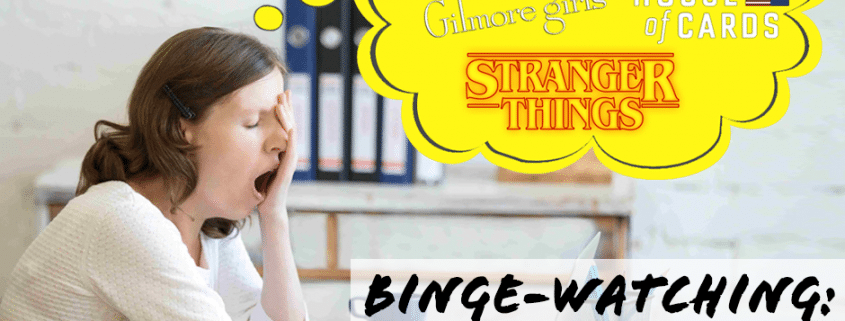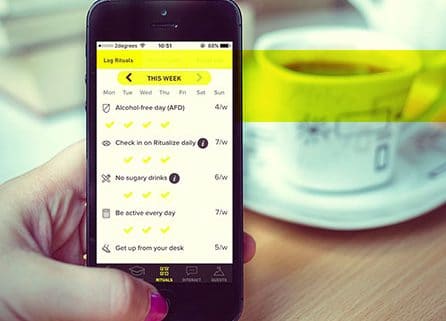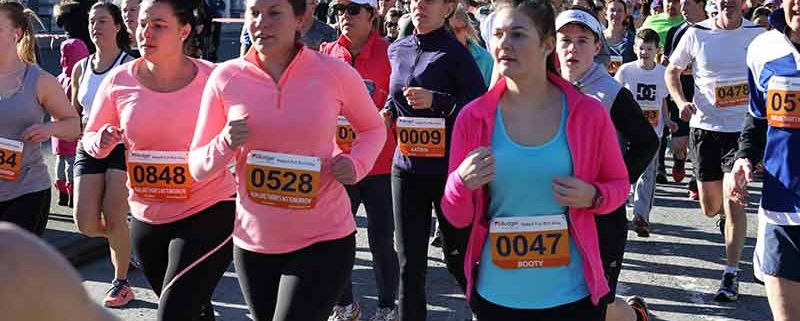Binge-watching before bedtime…

Are you guilty of it?
Since the introduction of streaming companies, such as Netflix and Stan, the era of scheduled programming has seemingly come to an end. Everyone can watch the content they like when they like. This unprecedented access has introduced a new viewing style: Binge Watching. Binge watching is defined as
“watching multiple consecutive episodes of the same television show in one sitting on a screen, be it a television, laptop, computer or tablet.”
Prior research has indicated that media bingeing was associated with more anxiety, depression, and fatigue. Binge viewers also reported higher levels of loneliness and depression. In more recent studies, conducted by the Journal of Clinical Sleep Medicine, it was reported that binge-watchers had more fatigue, insomnia symptoms, poorer sleep quality, and feeling more alert before going to sleep. Those who binge-watch before bed had 98% more chance of having poor-quality sleep than those who didn’t.
Looking at bright screens, especially at night, can wreak havoc on your biology, because it is one of the cues that helps maintain our circadian rhythm or body clock. When it gets dark, our bodies start to prepare for sleep, but bright lights can trick our brains into thinking it’s still daytime and it reduces our ability to secrete melatonin, which makes it not only harder to fall asleep, but also reduces the amount of sleep you get once you do fall asleep.
While we don’t expect you to stop watching shows, there is a way to help combat the binge-watching addiction. Dr Robert Oexman, a member of the American Academy of Sleep Medicine, says the best way to do it is on the weekend, and earlier in the day instead of the late evenings. Ideally, binge-watching should occur before 6 pm, and if that’s not possible, you should at least stop watching shows an hour before you start getting ready for bed.
For more tips and information on how to help improve your quality of sleep, check out our Ritualize app!
References:
http://jcsm.aasm.org/viewabstract.aspx?pid=31062
https://www.businessinsider.com.au/tv-binge-watching-can-damage-your-health-2017-9
SaveSave
SaveSaveSaveSave
SaveSave
5 Steps to Reprogram Your Genes
 There are fixed, heritable genes (such as skin and eye colour) and there are genes that can be influenced daily according to our lifestyle. These genes are continually directing the production of proteins that control how your body functions at every second of the day. Genes turn on or off (sometimes at a rapid rate) only in response to signals they receive from the surrounding environment – signals that you provide based on the food you eat, the exercise you do (or don’t do!), your quality of sleep, sun exposure and so on. Genes are like light switches that turn on and off and influence every element of body function. So, you are in the driver’s seat to take control of your genes expression. Here are some tips for you:
There are fixed, heritable genes (such as skin and eye colour) and there are genes that can be influenced daily according to our lifestyle. These genes are continually directing the production of proteins that control how your body functions at every second of the day. Genes turn on or off (sometimes at a rapid rate) only in response to signals they receive from the surrounding environment – signals that you provide based on the food you eat, the exercise you do (or don’t do!), your quality of sleep, sun exposure and so on. Genes are like light switches that turn on and off and influence every element of body function. So, you are in the driver’s seat to take control of your genes expression. Here are some tips for you:
- Awareness Start thinking about your everyday lifestyle and how your genes may be responding to it. Each day your genes will respond positively or negatively depending on how you are living your life.
- Exercise – The activity level of skeletal muscle modulates a range of genes that produce dramatic molecular changes, and keep us healthy (Neufer & Booth, 2005). Even one single vigorous workout can set off a chain reaction of health benefits through activation of key genes. Exercise can suppress the expression of genes that contribute to chronic diseases, whilst up-regulating healthy gene expression almost immediately. So, next time you’re sweating it out in a workout, know you are having a positive effect on your genes. It may be the motivation you need to go that extra mile!
- Nutrition Studies have shown that different intakes of food can affect your gene expression through a process called methylation. Methylation reactions are critical for many bodily functions and need significant amounts of methyl groups from food to function optimally. We have known for many years that certain foods which are high in B vitamins help with methylation, such as cooked vegetables (especially green vegetables & beets), unprocessed meats and quinoa – but we also need other foods to make up a healthy, balanced diet.
CARBOHYDRATE AND GENE EXPRESSION
Recent research from the University of Science and Technology in Norway has shed light on the gene, expressing effects of certain types of diet. “We have found that a diet with 65% carbohydrates, which often is what the average Norwegian eats in some meals, causes a number of classes of genes to work overtime,” says Berit Johansen, a professor of biology at NTNU.
This has significant implications for people who follow recommended dietary guidelines and eat a diet that has 55-65% calories from carbohydrate.
“Genes that are involved in type 2 diabetes, cardiovascular disease, Alzheimer’s disease and some forms of cancer respond to diet, and are up-regulated, or activated, by a carbohydrate-rich diet,” says Johansen.
The researchers concluded that both high and very low carbohydrate diets were wrong, but carbs should be capped at 40% calories. “A healthy diet shouldn’t be made up of more than one-third carbohydrates (up to 40 percent of calories) in each meal, otherwise we stimulate our genes to initiate the activity that creates inflammation in the body.”
WHAT SHOULD YOU DO?
The Ritualize 80/20 food pyramid will give you a great balanced diet that is lower in carbohydrate and higher in fat and protein than traditional government guidelines. Eat plenty of fresh, locally grown vegetables and a moderate amount of fruit, as well as grass fed, free range meat and chicken, sustainable fish, legumes, nuts and seeds and drink plenty of water. Most of your fat should come from extra virgin olive oil and avocado, with moderate amounts of coconut oil, dairy and other animal fats as well as minimal amounts of processed fats and commercial vegetable oils. The big key is to avoid processed foods and eat mostly stuff that has been alive. Home cooking is always the best, but for the time poor, there are more and healthier choices in supermarkets and grocery shops for a quick, easy meal.
- Stress – we have known for many years that chronic stress can have detrimental effects on your health, and we now know the biochemical pathways behind such negative effects. Even negative thoughts can stimulate the production of genes that increase our chances of chronic disease, but we need to understand the ‘Goldilocks effect’ of stress – we need a certain amount of stress to stimulate us and help us to adapt. This process is known as ‘hormesis’ and enables us to develop stress resistance. Just like an athlete can either under-train or over-train, we can get too little or too much stress. Athletes optimise their training by paying close attention to volume, intensity and duration, and so should we. During a period of prolonged and more intense stress, our recovery needs to be optimal – just like an athlete.
- Psychosocial – a number of other areas are emerging that can affect gene expression. We know that being socially isolated or rejected can up-regulate genes involved in dangerous metabolic inflammation, but being socially connected can have a positive effect on our wellbeing. Meditation has recently been found to suppress inflammatory genes and can even increase grey matter density and the practice of gratitude can enhance your mood and wellbeing. Doing a daily gratitude ritual, practising a few 1-minute meditations throughout the day and taking time to connect socially will pay huge dividends over time.
The bottom line is that a range of interacting lifestyle behaviours affects our gene expression and our overall health. Eating well will give you the energy to exercise and exercising regularly will help you to manage stress and enhance your focus, as will regular 1-minute meditations and a daily gratitude ritual. This will put you in the right frame of mind to cultivate social relationships, which will make you more positive – a very positive lifestyle loop!
SaveSaveSaveSave
Why Rituals Work
 With a multi-million dollar weight loss and fitness industry, plus thousands of apps you’d think it’d be easy for us to stick with a diet and exercise program. It all starts with the best of intention, but then momentum starts slowing down and motivation dwindles until you’re left with another weight loss ‘’ notch on your belt.
With a multi-million dollar weight loss and fitness industry, plus thousands of apps you’d think it’d be easy for us to stick with a diet and exercise program. It all starts with the best of intention, but then momentum starts slowing down and motivation dwindles until you’re left with another weight loss ‘’ notch on your belt.
Here’s the crux. Relying on motivation and willpower alone won’t work.
We are usually motivated by the pleasure of what we want, or by the pain of what we don’t want. Over time, however, motivation subsides and you are then relying on willpower. If you have little motivation, a Tim-Tam in front of you with your work colleague enjoying one next to you, willpower can be tough.
You see, willpower on its own is a bit like petrol in your car. The more you use up, the less you have. If you keep saying no to something when all you want to do it say yes, your willpower becomes depleted. This is why we often give in at night. All our willpower is used during the day, so at night we are more likely to reach for the Tim Tam we didn’t have earlier. It’s even harder when we are tired and stressed out.
Setting smaller, shorter terms goals is a great way to keep our momentum going. This is because our brains are wired to seek pleasure from short-term success, rather than a goal that seems an eternity away. Doing small, healthy rituals each day and ticking them off releases feel-good hormones in the brain, so we end up wanting to do more. Over time, these small rituals add to big changes. This applies to any area of our lives – the food we eat, our exercise and movement, sleep and how we think.
SaveSave
Why Sleep is so Important
 Sleep plays a vital role in good health and well-being throughout your life. Getting enough quality sleep at the right times can help protect your mental health, physical health, quality of life, and safety.
Sleep plays a vital role in good health and well-being throughout your life. Getting enough quality sleep at the right times can help protect your mental health, physical health, quality of life, and safety.
The way you feel while you’re awake depends in part on what happens while you’re sleeping. During sleep, your body is working to support a healthy brain function and maintain your physical health. In children and teens, sleep also helps support growth and development.
The damage from sleep deficiency can occur right away, or it can harm you gradually over time. For example, ongoing sleep deficiency can raise your risk for some chronic health problems. It also can affect how well you think, react, work, learn, and get along with others.
The amount of sleep you need each day will change over the course of your life. Although sleep needs vary from person to person, the chart below, from sleepfoundation.org shows general recommendations for different age groups. The recommendations are the result of multiple rounds of consensus voting after a comprehensive review of published scientific studies on sleep and health.
| Age | Recommended Amount of Sleep |
| Infants & Newborns | 16–18 hours a day |
| Preschool-aged children | 11–14 hours a day |
| School-aged children | 9 – 11 hours a day |
| Teens | 8–10 hours a day |
| Adults (including the elderly) | 7–8 hours a day |
To improve your sleep habits, it may help to:
- Go to bed and wake up at the same time every day. For children, have a set bedtime and a bedtime routine. Don’t use the child’s bedroom for timeouts or punishment.
- Try to keep the same sleep schedule on weeknights and weekends. Limit the difference to no more than about an hour. Staying up late and sleeping in late on weekends can disrupt your body clock’s sleep-wake rhythm.
- Use the hour before bed for quiet time. Avoid strenuous exercise and bright artificial light, such as from a TV or computer screen. The light may signal the brain that it’s time to be awake.
- Avoid heavy and/or large meals within a couple hours of bedtime. (Having a light snack is okay.) Also, avoid alcohol before bed.
- Avoid nicotine and caffeine (including caffeinated drinks, coffee, tea, and chocolate). Nicotine and caffeine are stimulants, and both substances can interfere with sleep. The effects of caffeine can last as long as 8 hours. So, a cup of coffee in the late afternoon can make it hard for you to fall asleep at night.
- Spend time outside every day (when possible) and be physically active.
- Keep your bedroom quiet, cool, and dark (a dim night light is fine if needed).
- Take a hot bath or use relaxation techniques before bed such as meditation.

SaveSave
Not a runner? Six reasons to enter a fun run anyway
Spring is when we see a flurry of fun runs and walks of short and long distances take place around the country and if you’ve ever watched a Fun Run you’ll have noticed the buzz, the pride and yes – sense of well-earned celebration as people cross the finish line. (See below for a list of events you can still sign up for over Spring).

If you’re not an avid runner, you may wonder how the words FUN and RUN could possible go together but for most people you talk to after their first run – they just want to do it again and again. It’s not just about the running. Here are a few reasons why you should consider signing up:
1. You don’t have to run!
Many fun runs have a variety of distance options, some going down to just a couple of kilometres where you have the option to jog or walk if you can’t keep going. Worried you might look silly if you can’t finish? If you can’t continue – stop. Nobody will think any less of you and in fact, you’ll find that many people you meet on the day will be new to running events and are there, just like you, to see how far they can push themselves.
2. It’s social
Research tells us if we exercise with others (we call them ‘accountability partners’) we are more likely to achieve our goals. You’ll also be spending quality time together, you will inspire each other and be more motivated to see it through.
3. It’s fun!
They don’t call it a fun run for no reason. The atmosphere and energy at fun runs can be amazing. Many organisers have music playing, entertainment and someone with motivating words blaring over a loudspeaker. People even run in fancy dress and others push prams. It’s a wonderful experience, whether you’re a long-time runner or not.
4. It’s motivating
Most of us need goals to keep us motivated and fun runs are a great goal to have. Most fun runs give the option of getting sponsored to raise money for charity, so not only are you motivated to get fit and healthy, you are also motivated to support a worthy cause. Motivation has been shown to increase when you have a purpose or a ‘why’ behind it. Read our article Find Your Why to find out more about this.
5. You’ll get fit
Whether you’ve signed up for the 5k, 10k, ½ marathon or even a marathon, you’ll want to train and the more train, the fitter you’ll get. The fitter you are, the better you will feel.
6. You will feel great afterwards
Crossing that finishing line with hundreds of other people simply feels great. Not only have you achieved your goal, but you have helped raise money for charity and are a part of a huge group of people all there for the same reason.
Upcoming fun runs across Australia
ACT
Run for your Lifeline, 4 Nov, Canberra
Grapest 5km Run, 2 Dec, Lake George
VIC
Homesglen Run for Change, 24 Oct, Chelsea
City2Sea, Sun 12 Nov, Melbourne
Carmans Womens’ Fun Run, Dec 3, St Kilda
NSW
Climb ‘n Dine stair climb, Sydney
MULTI-STATE
Run in the Dark, 15 Nov; Brisbane, Melbourne and Sydney
SA
Glenelg Classic, 12 Nov, Glenelg
Grapest 5km Run, 18 Nov, Langhorne Creek
TAS
Walk for Prems, Sun 29 Oct, Hobart
Beach to Bay, Strahan, Sat 4 November
WA
Color Run, 5 Nov, Perth
Triathlon Pink & Fun Run, 12 Nov, Perth
Images: © Anita Welsh Photography for Hobart Fun Run
Ice Ice baby – 4 days of cold exposure
Cold emersion and mindset has shown to influence the sympathetic nervous system and immune system, once believed to be systems that could not be voluntarily influenced.






